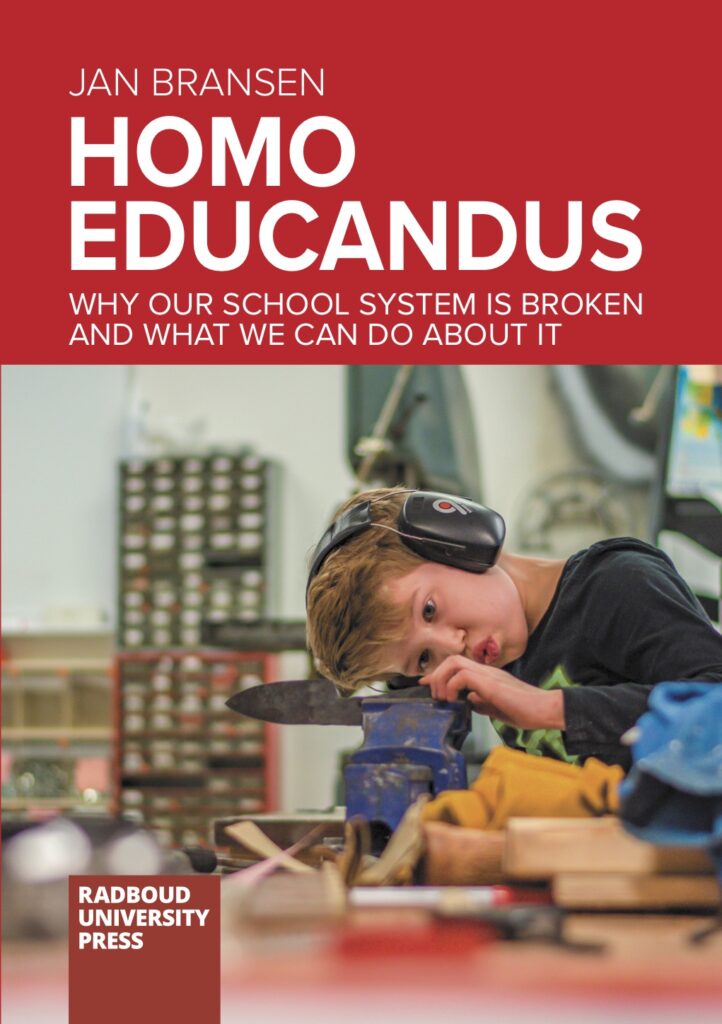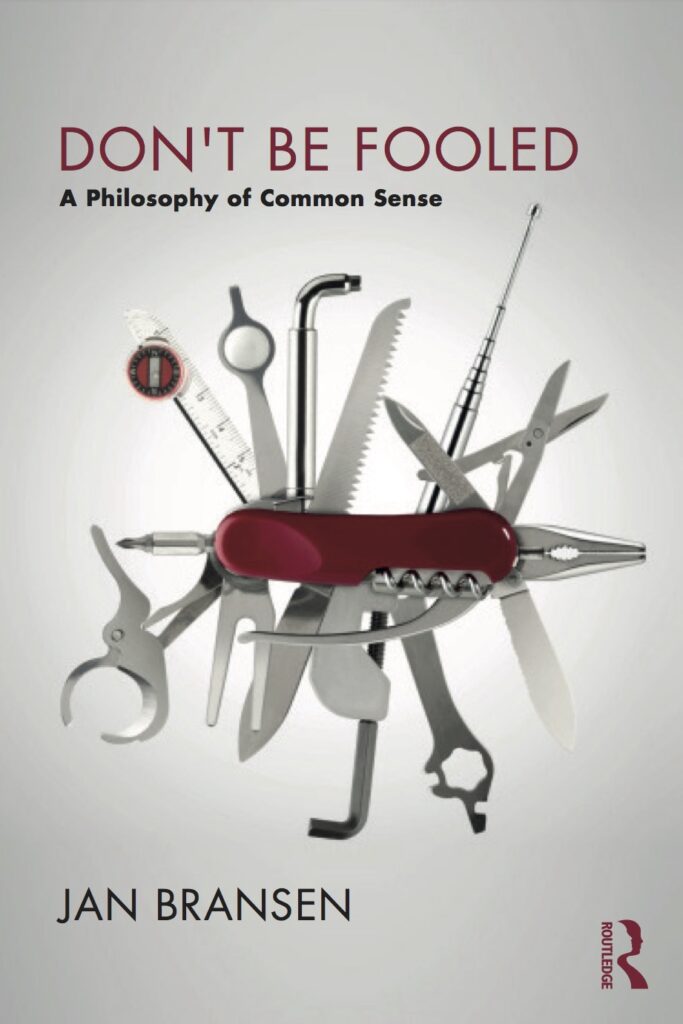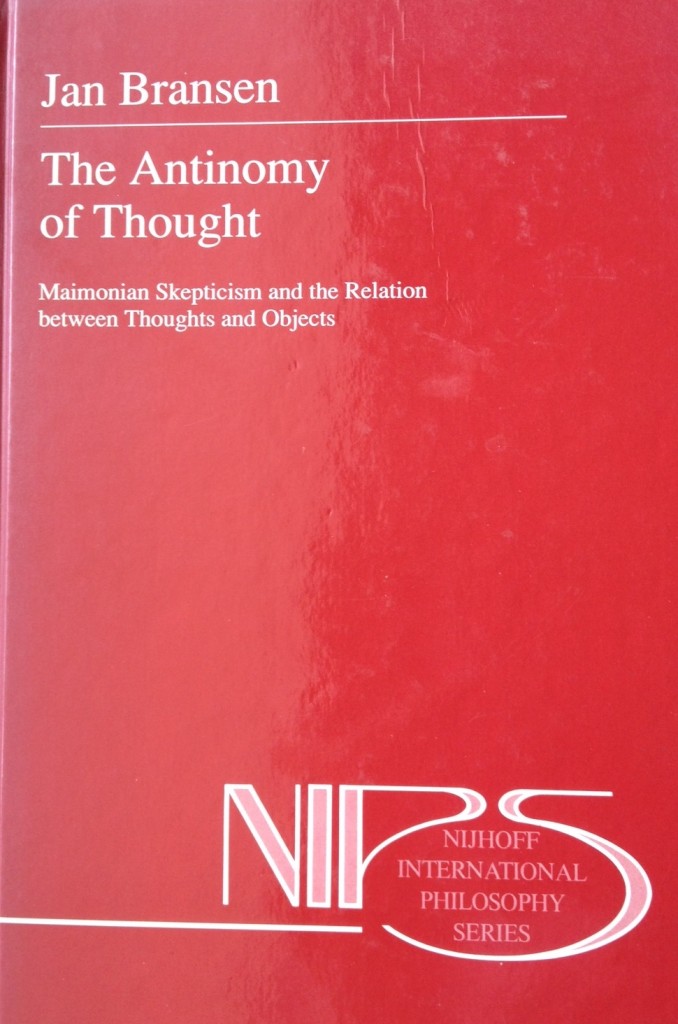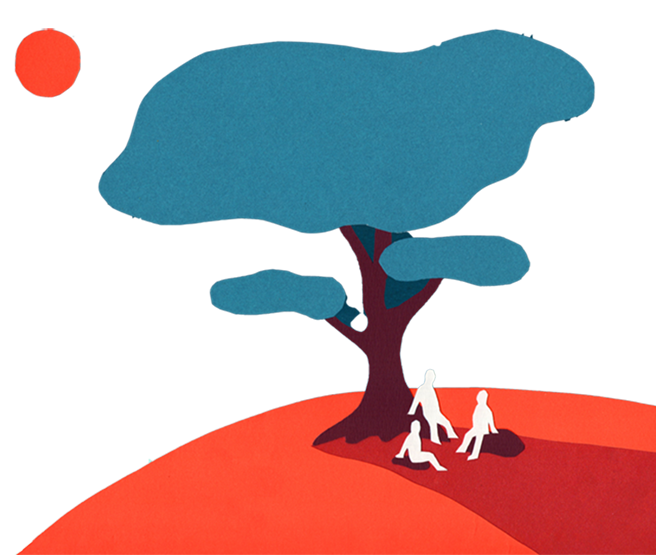Books

Linnaeus made a mistake when he named us Homo sapiens, the wise man. We’re not. We do too many stupid, destructive and irresponsible things to deserve that name. We need to be educated. Fortunately, we can be educated; we can transform ourselves. We are Homo educandus. We educate ourselves.
Read more…
Jan Bransen, Homo Educandus. Why Our School System Is Broken and What We Can Do About It. Nijmegen: Radboud University Press, 2021.

This book by Jan Bransen, Professor of Philosophy of Behavioural Science at Radboud University Nijmegen, is a plea for common sense. In a highly accessible, jargon-free and almost colloquial style the book develops an argument against the dominance of a social structure that capitalizes on scientific expertise to the detriment of our everyday capacity for critical thinking. The book is not an attack on science, but an attempt to resist our growing dependence on the sophisticated knowledge of ever more specialised experts.
Jan Bransen, Don’t Be Fooled. A Philosophy of Common Sense. Abingdon: Routledge, 2017.

In this book a case is made for an important voice we missed in the Kantian composition of our recent philosophical past: the voice of skepticism. It is introduced by means of an analysis of the work of an almost completely neglected early critic of Kant, Salomon Maimon (1752-1800).
It is argued that the work of Maimon provides powerful arguments for the claim that the structure of our articulations of the relation between thoughts and objects has an intrinsically aporetic character.
Jan Bransen. The Antinomy of Thought. Maimonian Skepticism and the Relation between Thoughts and Objects. Dordrecht: Kluwe Publishers, 1991.
Edited books:
- Bransen, J., Cuypers, S.E. (eds.)(1998). Human Action, Deliberation and Causation. Philosophical Studies Series 77. Dordrecht: Kluwer Academic Publishers.
- Bransen, J., & Slors, M. (eds.) (1996). The Problematic Reality of Values. Assen: Van Gorcum
Articles in English:
- Bransen, J. (2017), Where? Me? Indeterminacy and Ambiguity in Human Motivation. In Katharina Bauer, Somogy Varga & Corinna Mieth (eds.), Dimensions of Practical Necessity. “Here I stand. I Can Do No Other.” London: Palgrave MacMillan, 177-194.
- Bransen, J. (2017), Could Trump Be His Own Valentine?, The Critique, Valentine’s Day Issue “What Is Love? Friendship, Sex, And Romance In The 21st Century.”
- Bransen, J. (2016), Learning to Act, Symposion. Theoretical and applied inquiries in philosophy and social sciences, Vol. 3(1), 11-35.
- Bransen, J. (2015), Self-Knowledge and Self-Love, Ethical Theory and Moral Practice, Vol. 18(2), 309-321.
- Bransen, J. (2014), Loving a Stranger. In Christian Maurer, Tony Milligan & Kamila Pacovska (eds.), Love and Its Objects: What Can We Care For?, Basingstoke: Palgrave Macmillan, 2014, 143-159.
- Bransen, J. (2012), Becoming Oneself through Failure and Resolution. In Käthe Schneider (ed.), Becoming Oneself: Dimensions of “Bildung” and the facilitation of personality development, Heidelberg/Wiesbaden: Springer VS-‐Verlag, 2012, 5-28.
- Bransen J. (2008), Educatability: Dissolving the problem of man’s uniqueness. Journal of Anthropological Psychology, Vol. 20, pp. 2-9. (target article)
- Bransen J. (2008), An invitation to share evaluations. Author’s response. Journal of Anthropological Psychology, Vol. 20, pp.23-27.
- Bransen, J. (2008) Personal Identity Management. In: C. Mackenzie & K. Atkins (Eds.), (2008) Practical Identity and Narrative Agency, pp 101-120. New York: Routledge.
- Bransen, J. (2007) Proleptic Self-knowledge. In: Ján Ólafsson & Juha Räikkä, (2007) Rationality in Global and Local Contexts, pp 5-28. Turku: University of Turku Press.
- Bransen, J. (2006). Education, history, and human nature. In E.Mulder & R. van Goor (Eds.),Grey wisdom? Philosophical reflections on conformity and opposition between generations (pp ). Amsterdam: Amsterdam University Press.
- Bransen, J (2006). Selfless Self-Love, Ethical Theory and Moral Practice,Vol. 9 (1), pp. 3-25.
- Bransen, J. (2005) Competences: An Introduction to Educational and Developmental Perspectives on Minded Agency, Philosophical Explorations, Vol 8 (3), pp. 209-215.
- Bransen, J. Anticipating reasons of one’s own. In: Sie, M., Slors, M., & Brink, B. van den (Eds.). (2004). Reasons of one’s own, pp.87-105. Hampshire: Ashgate Punblishing Limited.
- Bransen, J. (2004). From daily life to philosophy.Metaphilosophy, 35(4), pp. 517-535
- Bransen, J. Self-understanding and self-determination. An unfamiliar look at the philosophy of education. In: Smeyers, P., & Depaepe, M. (Eds). (2003). Beyond empiricism. On criteria for educational research, p.171-180. Leuven: Leuven University Press.
- Bransen, J. (2002). Making and Finding Oneself in: Haaften, W. van., Musschenga, A.W., Slors, M., & Spiecker, B. (eds.). Personal and Moral Identity, 77-96. Dordrecht: Kluwer.
- Bransen, J. (2002). Normativity as the key to objectivity: An exploration of Robert Brandom’s articulating reasons.Inquiry, 45(3), pp. 373-392.
- Bransen, J. (2002). On the Incompleteness of McDowell’s Moral Realism.Topoi, Vol 21(1), 187-198.
- Bransen, J., & Meijers, A. (2001). Explaining Beliefs: an Introduction. In: Baker, L.R., & Meijers, A. (ed.). Explaining Beliefs pp. 1-16. Stanford: CSLI Publications.
- Bransen, J. (2001). On Exploring Normative Constraints in New Situations. Inquiry, Vol 44(1), pp. 43-62.
- Bransen, J. (2001). Verstehen and erklären; the philosophy of. In: Smelser, N.J., & Baltes, P.B. (eds.) International Encyclopedia of the Social and Behavioral Sciences, 16165-16170. Oxford: Elsevier Science Ltd,
- Bransen, J., & Smets, J. (2000) Moral Competence in Action: an Introduction. Philosophical Explorations, Vol. 3(3) , 202-207.
- Bransen, J. (2000). Alternatives of Oneself. Recasting Some of Our Practical Problems. Philosophy and Phenomenological Research, Vol 60(2), pp.381-400.
- Bransen, J. (1998). True to Ourselves.International Journal of Philosophical Studies, Vol. 6(1), pp. 67-85.
- Bransen, J. (1998). Editorial. Philosophical Explorations. Vol. 1(1), 3.
- Bransen, J., & Cuypers, S. (1998). Introduction.Human Action, Deliberation and Causation, pp. 1-13.
- Bransen, J. (1998). Making X Happen. Prolepsis and the Problem of Mental Determination. Human Action, Deliberation and Causation, pp. 131-153.
- Bransen, J. (1996). Identification and the Idea of an Alternative of Oneself.European Journal of Philosophy, Vol. 4(1), pp.1-16.
- Bransen, J., & Slors, M. (1996). Introduction,The Problematic Reality of Values, pp. 1-12
- Bransen, J. (1996). Values and the Reality of Problems.The Problematic Reality of Values, pp. 76-91.
- Bransen, J. (1996). The Good Life is Many Ways: Comments on Joel Anderson. The Problematic Reality of Values, pp. 116-120.
- Bransen, J. (1995). Contemporary Anthropocentrism, Salomon Maimon, and the Problem of Experience. In: Hoke Robinson (Ed.) (1995) Proceedings of the 8th International Kant Congress, vol. II. pp 145-154. Milwaukee: Marquette University Press.
- Bransen, J. (1994). Anthropocentrism in Favourable Circumstances, Inquiry, Vol. 37(3), pp. 339-347.
Articles in Dutch:
- Bransen, J. (2016) Pedagogisch gezag is geen epistemisch gezag. Een pleidooi tegen de verwetenschappelijking van de pedagogiek. Pedagogiek. Wetenschappelijk forum voor opvoeding, onderwijs en vorming, Vol. 16(2): 175-198.
- Bransen, J. (2016) De opvoeding van toekomstige politici. Vers Beton, 2 juni 2016. [Engelse vertaling: The upbringing of future politicians. Erasmus Magazine, June 15, 2016.]
- Bransen, J. (2015) De straat is van mij – natuurlijk!. Filosofie & Praktijk, Vol. 36(4), 19-32.
- Bransen, J. & Hutschemaekers, G. (2015) Wat maakt blind? Liefde? Of Wetenschap?. Algemeen Nederlands Tijdschrift voor Wijsbegeerte, Vol. 107(1), 95-116.
- Bransen, J. (2014), Puzzelwoorden. In Luca Consoli & Ron Welters (red.), De goede wetenschapper, Nijmegen: Valkhof Pers, 2014, 57-74.
- Bransen, J. (2014), Authenticiteit, Integriteit en identiteit. In Martin van Hees, Thomas Nys & Ingrid Robeyns, Basisboek Ethiek, Amsterdam: Boom, 2014, 46-60.
- Bransen, J. (2012), Doceerbaarheid. In Wouter Sanderse & Evert van der Zweerde (red.),Denkruimte. Reflecties op universitaire idealen en praktijken, Nijmegen: Valkhof Pers, 2012, pp. 108-124.
- Bransen, J. (2011). We zeggen maar wat! Frankfurt, filosofie en gelul. In: Katrien Schaubroeck en Thomas Nys, Vrijheid, noodzaak en liefde. Een kritische inleiding tot de filosofie van Harry Frankfurt. Kapellen/Zoetermeer: Pelckmans/Klement, 2011. pp. 183-203.
- Bransen, J. (2011). Nou zeg, waar bemoei je je mee. Algemeen Nederlands Tijdschrift voor Wijsbegeerte, Vol. 103(1), pp 4-20.
- Bransen, J. (2011). Ik wil wel mezelf kunnen zijn! Zelfcontrole in de gedragswetenschappen, in: Maureen Sie (red.)Hoezo vrije wil? Perspectieven op een heikele kwestie, Rotterdam: Lemniscaat, pp. 171-189.
- Bransen, J. (2010). Het roer moet om. Naar een sentimentalistisch humanisme. Streven, April 2010, 310-321.
- Bransen, J. (2010). Wat doen ze me nou? Filosofie & Praktijk, 31(1).
- Bransen, J (2009). Beschaving zonder fatsoen.Filosofie & Praktijk, 30(5), 34-46.
- Bransen, J. (2009). I will survive.Wijsgerig Perspectief, 49(3), 22-29.
- Bransen, J. (2005). Zoek niet naar een publieke moraal!Filosofie & Praktijk, Vol. 26(2), pp. 38-50.
- Bransen, J.(2003). De opvoedbare mens. In: Hees, M. van., Jonge, E. de., & Nauta, L. (eds). Kernthema’s van de filosofie. Amsterdam: Boom. 89-109.
- Bransen, J. (2002). Het humanistisch denken. In Brugmans E. (red.), Cultuurfilosofie. Katholieke, reformatorische, humanistische, islamitische en Joodse reflecties over onze cultuur. Budel: Damon. 261-292.
- Bransen, J. (2001). Menselijkheid. Humanisme als filosofisch probleem. Tijdschrift voor Humanistiek, nr. 7, 16-26.
- Bransen, J. (2000) Eerst denken, dan denken, dan (…) doen. Filosofie in Bedrijf, Vol 38-39, pp. 62-76.
- Bransen, J. (2000) Een alternatieve kijk op toekomstscenario’s. Filosofie in Bedrijf, Vol. 36, pp. 5-19.
- Bransen, J. (2000)Normatief relevante zelf-kennis.Filosofie & Praktijk, Vol. 23(1), pp. 33-47.
- Bransen, J. (1997) Zoeken naar de Juiste Woorden. Taylor over Filosofie. In: S.E. Cuypers & W. Lemmens (red.), Charles Taylor. Een mozaiek van zijn denken. Kapellen/Kampen: Uitgeverij Peckmans/Kok Agora, pp. 175-191.
- Bransen, J. (1997) ‘Van mij’. In E. Heijerman & P. Wouters, Praktische filosofie. Utrecht: TELEAC/NOT, pp. 117-119.
- Bransen, J. (1995) Een kwestie van mentaliteitsverandering.Wijsgerig Perspectief,35 (6), pp. 185-189.
Books in Dutch:
- Jan Bransen, Waar filosofen van houden. Leusden: ISVW Uitgevers, 2016.
- Jan Bransen, Wie ben ik dan? Een filosofisch draaiboek voor je toekomst. Leusden: ISVW Uitgevers, 2015.
- Jan Bransen, Je brein of je leven. Leusden: ISVW Uitgevers, 2014.
- Jan Bransen, Laat je niets wijsmaken: over de macht van experts en de kracht van gezond verstand. Zoetermeer: Klement, 2013.
- Jan Bransen, Word zelf filosoof. Diemen: Veen Magazines, 2010. [4e druk, heruitgave bij ISVW Uitgevers, maart 2014]
- Jan Bransen, Drie modellen van het menselijk handelen. Reeks Tertium Datur 2. Leuven: Peeters Publishers, 1999.
- Jan Bransen, Filosofie en ironie. Fantastische opmerkingen over de toekomst van een traditie. Nieuwveen: Uitgeverij Philosophicon, 2012.
[Heruitgave. Oorspronkelijk uitgegeven bij Kok Agora, Zwolle in 1992.]
Published Lectures in Dutch:
- Bransen, J. (2010). Ongedisciplineerd streven naar begrip. Buytendijklezing, Radboud Universiteit Nijmegen, 2010, 32 pp.
- Bransen, J. (2004). Jezelf blijven. Oratie Nijmegen, 2004, 24 pp.
- Bransen, J. (2001).Dat kunnen we zelf wel! Over humanisme en het vermogen onszelf te corrigeren. Oratie Leiden, 2001, 24 pp.
